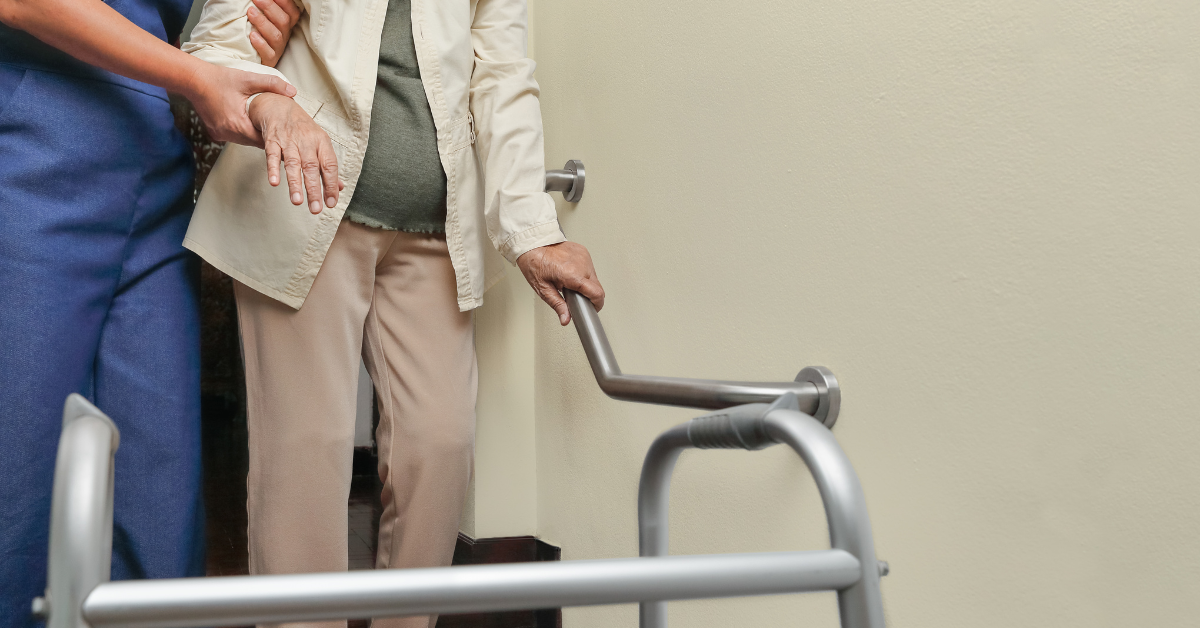Caregiving and Stress
“What’s going on, Sis?” asked Sarah. “I could tell that you weren’t yourself when we chatted this morning, and now I find you crying. Did something happen to one of the kids?”
“Yeah, it’s one of my kids – my oldest “kid!” responded Alexia. “Dave’s dad is going to drive me silly. I want him to live with us. He’s been a super father-in-law and grandpa. Plus, I want to do this for Dave. But some days, I want to run away from it all! He used to help Dave’s mom with the laundry – which I always thought was sweet. Today, he decided to ‘help’ me with the laundry while I was sweeping the bedrooms. He switched the load from the washer to the dryer and turned it on – ruined my new sweater!”
“Oh, Alexia, I admire what you’re doing here, but you must take care of yourself too. Now, take a nap, a walk, or a drive to Mannie’s for your favorite Italian Ice. I’m going to stay here and watch game shows with your father-in-law. While John is watching, I’ll look into tips for dealing with caregiver stress. We’ll talk when you get back.”
First, Alexia had to recognize that stress was damaging her emotional and physical health. She acknowledged that she wasn’t sleeping well and often found herself depressed, anxious, and irritable. She was too busy for activities that used to bring enjoyment.
Just talking to someone who cared helped Alexia. She recognized that their home was a safe and loving environment for Dave’s dad. They had a financial plan, but now they needed a stress-reducing guide. A pot of coffee and a couple of hours later, she and Sarah had created a plan.
They began with the 4 A’s of stress management from The American Institute of Stress:
- Avoid: Choose one of your most common struggles in caring for someone in your home. Write it down and then determine how you could avoid that hassle.
- Alter: Write down one thing that causes you stress. Determine what action you could take to alter that situation in the future.
- Accept: Yes, this is the situation you are in right now. Choosing to accept will help you use your energy to focus on actions you can take to make it go smoother rather than the frustrations that can arise.
- Adapt: Whether it’s learning new skills, being intentional about appreciating the small things, adjusting your schedule, etc., long-term care requires adapting.
The key to all four A’s is being willing to ask for help, seeking counsel, connecting with organizations designed to help caregivers, and talking to caregivers. Give yourself credit for all the ways you have already chosen to avoid, alter, accept & adapt.
The above all sounds great, but now we need some practical application, so here are -
8 Tips to Reduce Stress for Caregivers
- Get regular exercise: Choose an activity you enjoy, like joining a televised exercise group, swimming, walking, dancing, or joining the Y. Consistent exercise not only reduces stress, it also builds your energy, clears your mind, and makes a significant impact on your overall health.
- Choose healthy meals and sleep habits: It refuels your body and builds your energy to face your tasks with a more positive attitude.
- Take time for meditation: It not only reduces stress levels, but it can also reduce your blood pressure and improve your sleep. But that’s not all; it can increase self-awareness, which can help you have more empathy and compassion with your loved one.
- Connect: It’s easy to become so busy caregiving that you don’t take time for relationships. Make a weekly phone date with a trusted friend or mentor. Connect with online support groups for caregivers. Meet a friend for lunch. Set regular date nights with your significant other. Connect with a home caregiving service – they help with your loved one and give you time to get away.
- Involve other family members in caregiving: Whether it’s helping with your loved one or taking responsibility for tasks that used to be yours, there are many ways for family and friends to pull together. Sometimes, they are just unaware of the need for help. Other times, they want to help but don’t know how. Don’t be afraid to ask.
- Just say no: Learn to say no to activities and responsibilities others place before you. Sometimes, you may want to help or join a group but learn to stop and ask yourself. “Will this build me up so I’m a better caregiver, or will it pull me down?”
- Do something you enjoy every day: Even if it’s just 20 minutes each morning or afternoon, do something that is pure fun – whether it’s reading, a hobby, playing with your pet, watching your favorite sitcom, etc. – joy defeats stress.
- Laugh: Yes, that’s right! There’s a reason for the proverb, “Laughter is the best medicine.” Laughter takes the edge off those stressful moments and improves your overall mental and emotional health.
HomeAides understands the stress of being a caregiver. When you want to keep your loved one at home, We provide the best in personal homecare - in-home personal care for adults & seniors in Erie, PA, and the surrounding communities of Northwest Pennsylvania. Contact us today.










